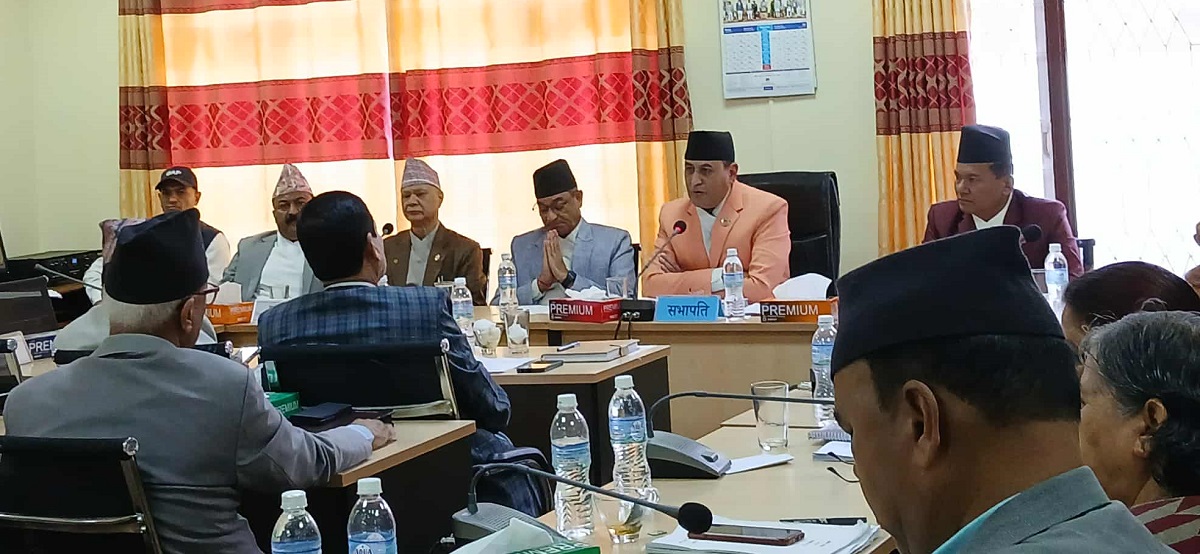The State Affairs and Good Governance Committee of the House of Representatives has backtracked from an earlier understanding that allowed retired civil servants to immediately take up diplomatic responsibilities, including ambassadorial roles.
The committee had previously agreed to exempt retired federal civil servants from a "cooling-off period" for diplomatic appointments under the Federal Civil Service Bill, which is under clause-wise discussion in the committee.
A sub-committee led by Nepali Congress lawmaker Dilendra Prasad Badu had proposed that no cooling-off period would apply to retired federal civil servants for diplomatic appointments or to retired judicial service employees for judicial appointments.
However, the committee has removed this provision from the draft report submitted for approval, instead introducing a one-year cooling-off period. A cooling-off period refers to the duration after retirement during which a former employee cannot be appointed to other constitutional or government positions.
The committee is against allowing retired employees to be immediately appointed to other constitutional commissions.
While the draft report proposes a one-year cooling-off period, a majority of lawmakers favor extending it to two years. The ruling CPN-UML supports a one-year cooling-off period, while the Nepali Congress advocates for two years.
Government employees, on the other hand, are against a cooling-off period, arguing they should be able to utilize their years of experience in constitutional commissions.
Lawmakers, however, claim that government secretaries and employees often pressure the government for various appointments, complicating governance. They believe a cooling-off period will curb collusion between high-ranking government officials and ministers.
Chief Secretary Ek Narayan Aryal argued against a cooling-off period in the committee's meetings, saying it discriminates by allowing judicial service employees to become judges and select civil servants to take up diplomatic roles.
He said that imposing a cooling-off period on civil servants for taking up roles in constitutional commissions would limit such appointments to retirees from universities or police services.
The committee has scrapped the sub-committee’s provision, mandating a cooling-off period for all. The bill’s new draft report states that civil servants or other government service employees cannot be appointed to constitutional or government positions for a year from the date of their retirement.
By including “other government services,” the bill aims to also prevent retirees from universities and police services from joining constitutional commissions.
“We are proposing a one-year cooling-off period for all employees by mentioning other government services,” a lawmaker told Setopati. “However, whether the Federal Civil Service Bill would apply to individuals in other services in the future may require the court’s interpretation.”

